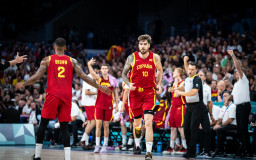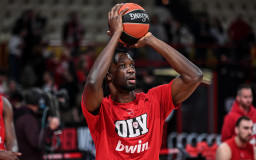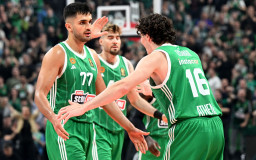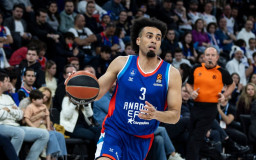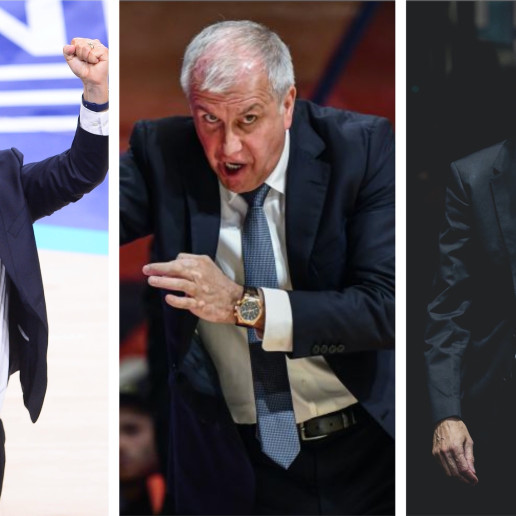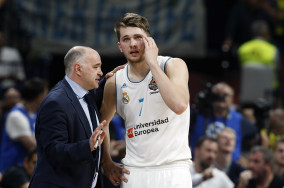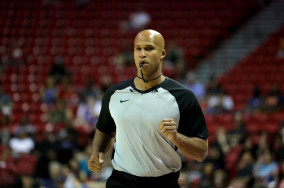Patriotism and national pride are two elements that are quite prevalent in many countries, not only in everyday life but also in the basketball world.
While the presence of foreign players in most teams is extremely common, it's not the same for the head coaches.
The preference in most countries is often to go for a domestic head coach. This trend has always been there, and it's pretty evident even in the upcoming EuroLeague season.
12 of the 18 teams that will play in the EuroLeague next season have a head coach from their own nation:
- Alex Mumbru, Valencia
- Zeljko Obradovic, Partizan Belgrade
- Sergio Scariolo, Virtus Bologna
- Kazys Maksvytis, Zalgiris Kaunas
- TJ Parker, ASVEL Villeurbanne
- Joan Penarroya, Baskonia
- Ergin Ataman, Anadolu Efes
- Oded Katttash, Maccabi Tel Aviv
- Chus Mateo, Real Madrid
- Ettore Messina, Armani Exchange Milan
- Vladimir Jovanovic, Crvena Zvezda
- Georgios Bartzokas, Olympiacos Piraeus
66% of EuroLeague clubs work with local coaches, the vast majority. A number that cannot be ignored or taken only as a coincidence.
Just as NBA teams are reluctant to offer the head coaching position to a non-American, many European teams are equally reluctant to choose a coach who comes from abroad.
And if you look more closely, it's also pretty difficult to find American coaches in head coaching positions in Europe.
"I think there's a logical resistance among the NBA organizations and the owners of the teams to trust someone who is a foreigner, who may not speak perfect English, who has no roots in the country. I don't think there's any problem there", Ettore Messina recently said about the NBA and the difficulty for foreign coaches to get a spot as head coaches.
The words that Messina used about the NBA can be transferred to the European system in many ways as well.
Many teams believe that the foreign coach is the last option available, and sometimes when there are foreign specialists in a certain league, we're talking about coaches who have been in that country for so many years that it's almost natural to consider them as domestic ones.
In the NBA, the only two international coaches to get a chance as head coaches in recent years were David Blatt and Igor Kokoskov, but both had a very peculiar background.
Despite being an Israeli citizen, David Blatt was born and raised in the USA, and despite coaching for many years in Europe, he's an American head coach.
Igor Kokoskov, on the other hand, is Serbian but has spent many years in the USA before becoming a head coach in the NBA. He moved to the USA in the early 00s and spent almost 20 years mostly working as an assistant coach before getting the head coaching job with the Phoenix Suns.
In Serbia, especially when coach Kokoskov was relieved from his duties as head coach of the Serbian NT, many criticized him because he was considered more American than Serbian.
We shouldn't forget that background in these situations means a lot. It's unlikely that Kokoskov would have got the head coaching job in Phoenix if he hadn't spent so much time in the league as an assistant.
The cultural aspect is an important one to consider. In many countries, teams are pretty conservative and often prefer hiring local head coaches.
"Look at the ABA Liga. For example, most of the teams there go for coaches from the Balkan area", a EuroCup executive told BasketNews. "Because for their culture and mindset, coaches from that area are the best in the world, so why should they go to someone who comes from outside?"
Coach Andrea Trinchieri, who coached Partizan Belgrade from 2018 to 2020, confirmed this notion in an interview with Backdoor Podcast two years ago.
"My grandmother is from Montenegro, and my mom is from Croatia. I can speak Serbian, and this was a 'conditio sine qua non'," Trinchieri explained. "They wouldn't have even considered me without my family roots."
Once again, this shows how the cultural factor is really important in this matter. Every country has its own basketball tradition, and the general idea is often to work with domestic coaches because they know the culture and environment of that country better than the foreign ones.
France is another country where most of the teams are very conservative, and tend to believe that the French coach is the best option," an executive of a French club told BasketNews. "If they go for a foreign coach, most of the time, it's because they have a foreign GM or executive who wants to try a different route."
Another element to consider in this matter is the fact that in several countries, there are strict rules imposed by the coaches' associations for the arrival of coaches from abroad.
In countries like Italy, France, and Spain, it's actually pretty difficult to hire a coach from abroad because of the rules.
It's hard to get a license for a coach from abroad, especially if he's one without a lot of experience. Even coach Jasikevicius had issues at first obtaining the license to coach in ACB when Barcelona wanted to hire him.
National federations and coaches' associations in many countries tend to be strict to protect domestic coaches, so they put specific exams that foreign specialists have to undergo and fees that they have to pay if they want to coach in that specific country.
So, for a coach coming from abroad, especially if he has to move during the season, it becomes harder to finalize that move because he has to focus on passing the exam, so the entire procedure becomes longer.
In Italy, a foreign coach can work only if he receives a license from the federation. This license can be obtained in three ways:
- a multi-year course
- the license can also be assigned with a direct request and a much faster process, but only to former players of the Italian national team or former NBA coaches, or Division I NCAA coaches
- an exam (without the multi-year course) for coaches who have already worked in top leagues in Europe
For the third option, the coach has to take the exam in front of a committee of five people. The exam costs 10.000 euros and before that the coach (with the help of the team that wants to hire him) has to fill in many documents.
If the coach passes the examination, he has to make another request to physically receive the license and pay for it and then other documents. In short, an exhausting procedure.
In the Italian league, as of right now, there are only two foreign coaches. Jasmin Repesa, the head coach of Pesaro, and Matt Brase, the new head coach of Varese.
However, Repesa has been working in Italy for so many years that he's almost considered an Italian coach. Matt Brase is the only real exception, and he was hired by Varese, which has been recently under the new management of CEO Luis Scola and GM Michael Arcieri, both willing to try a different approach.
"I think this trend will not go away anytime soon," a FIBA agent told BasketNews. "In basketball, we still have a lot of teams that are managed like a family business, and in these environments, the safer option is always to go for the domestic head coach, not for the foreign one."
"Even in EuroLeague, where you have teams with much bigger budgets than other clubs, you don't see too many coaches coming from abroad," EuroCup executive told BasketNews. "And even when you have those, like Jasikevicius in Barcelona or Trinchieri in Munich, you have to weigh in on their backgrounds."
Jasikevicius is not simply a foreign head coach. He's a former EuroLeague legend, and he played for several years in Barcelona during his career, so everyone knows him there, and he knows that environment better than many people.
Trinchieri, on the other hand, has worked in Germany for multiple years; he won almost everything with Bamberg and already had a connection with Daniele Baiesi, who was working already for Bayern.
NBA and EuroLeague are often mentioned as 'global leagues', and that's definitely true when it comes to the players. However, when we focus on coaches, it feels like we're still in a very local environment.
